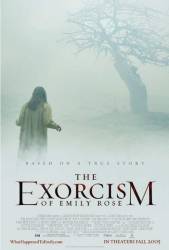Factual error: During the opening scene when the house is being shown, a nest hangs from the porch ceiling with live bees swarming around it. It is also snowing. The insects are honeybees, but the nest is a hornet nest. Honeybees don't make paper nests. Also, bees, hornets, and wasps are not active during the winter. (00:02:40)
Factual error: When Doctor Cartwright is struck and goes through the windshield which shatters like regular glass. Car windshields are laminated and do not break apart and shatter in this manner. (01:32:00)
Factual error: During the credits, as the house is shown, a paper wasp nest is shown hanging from the eaves. Crawling all over it are honeybees, which do not live in paper nests.
Continuity mistake: When the lawyer, Laura, is in her room in two scenes, one of which is when she checks on a letter almost at the end of the film, her hair is lighter than the rest of the movie, where her hair is noticeably darker.
Character mistake: When Ethan Thomas objects to Dr. Adanie's testimony, he does so on the grounds of "silliness." Silliness does not fall under the federal rules of evidence, and any lawyer worth their salt would know this.
Suggested correction: During the Manson trial in real life, the prosecutor objected to a completely pointless question the defense asked a witness on the grounds of being ridiculous. The judge agreed and sustained the question. In his book Helter Skelter, Bugliosi even acknowledges there's no such rule, but the judge sided with him. The prosecutor in this film is grasping at straws, since nothing that would fall under the rules of evidence would apply to his objecting to her scientific testimony.
Not true, he can object on the grounds of relevance. The YouTube channel Legal Eagle, which is run by an actual lawyer, even stated so. The same logic applies to the Manson trial. If a lawyer feels that a question is ridiculous, they can object on the grounds of relevance.
In a case involving demonic possession as a central aspect of the defense, there's no way relevance could be grounds to object to her testimony. Her testimony dealt with possession from a scientific point of view, but he objected because it was for the defense. The judge in the film even allowed her testimony stating that they'd heard a lot of scientific evidence supporting the prosecution's case and it was fair to hear from an 'exorcism expert'.
As for the Manson case, try reading the book written by the prosecutor. It even states in the transcripts that he objected on the grounds of a question being ridiculous (even if, in the end, it would actually be relevance).
Just because a lawyer in real life was able to successfully object on the grounds of ridiculousness doesn't mean it would suddenly become a good practice. That would be like saying basketball players should just wantonly heave half court shots, because sometimes they go in. The premise of your suggested correction was also that the lawyer had no legal grounds to object on, and that is objectively false. As I mentioned, the lawyer behind the LegalEagle YouTube channel even said otherwise.
Continuity mistake: When Ethan Thomas submits his opening statement in the court room, Emily's mother is wearing black. When the camera cuts to father Richard Moore she's wearing a white sweater and blue shirt, then when it cuts back to Ethan she is back in black again.





